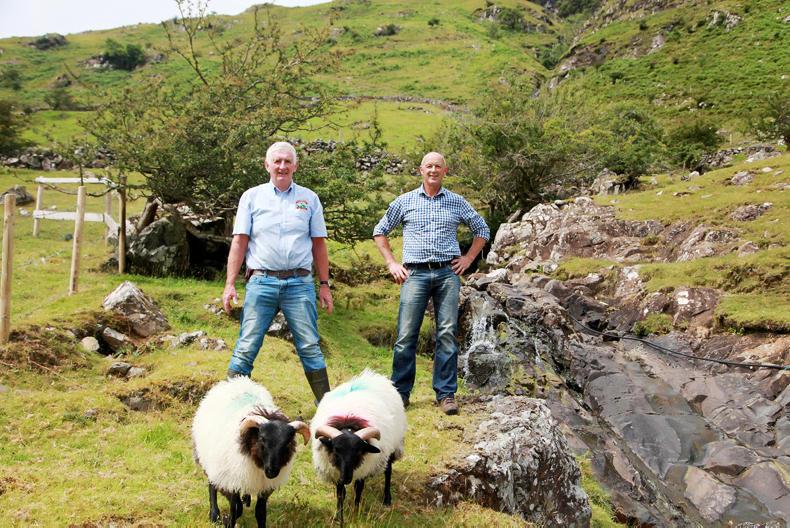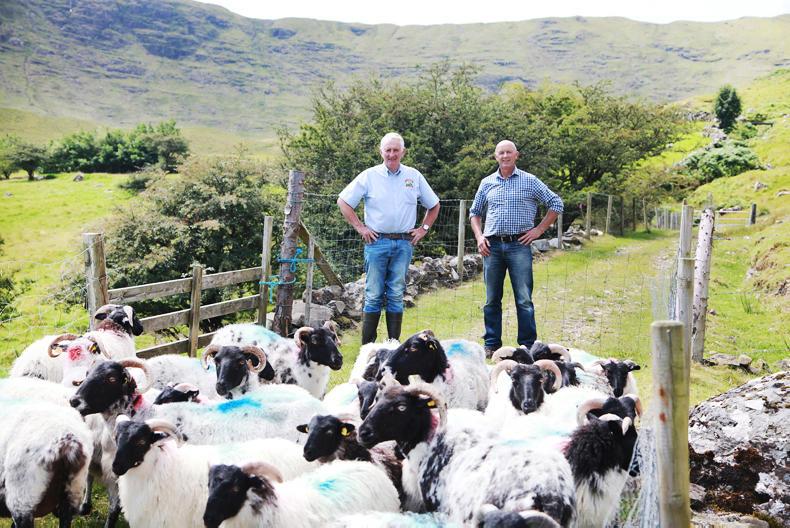Champagne from France, Parmigiano-Reggiano from Italy, feta from Greece and Portuguese olive oil. Join the dots between these foods across their country borders and many think of quality, excellence, home-grown goodness.
What they all have in common – and many more besides them– is that they are protected under the European scheme of geographical indicators (GIs). This means food and drink that carry this prestigious term cannot be made anywhere else. For many, they are a symbol of pride, proclaiming to the world that this is our indigenous product, one we have perfected over time, one we are proud of.
Countries on the continent certainly know how to promote the produce they are proud of. France has in excess of 50 products protected as GIs, with Italy not far behind them. Here in Ireland, we have just seven. However, more are in the pipeline, pursuing this prestigious label – and Irish consumers may be taking more notice in the near future.
GIs are divided into three sections, as explained in the box (see right), so where do the Irish stand in terms of these protected food names? These are the questions posed to Marian Byrne, and Niall McKeon from the food industry development division from the Department of Agriculture.
“Currently, we have four products listed under the PGI status,” explains Marian. “There was a big push in the late 1990s to get products submitted.”
Clare Island Salmon and Timoleague Brown Pudding were the first to gain this status, followed by Connemara Hill Lamb in 2007. However, when the Waterford Blaa achieved its status in 2013, it certainly hit the headlines.
“Lots of factors came together in a happy coincidence,” explains Marian. “In Waterford, everyone knew what the Blaa was, so there was a bit of familiarity.” On top of that, they were a small group of players, businessmen with a real vision, who overcame limitations.
“The whole thing about the Blaa is you are supposed to keep it fresh. One of our colleagues here said: “Why don’t you submit on your application that it can be frozen? It was put into the spec, nobody objected and that meant that they could begin to think about sending it to Dublin, trialling it in Paris, even the Middle East. They overcame the limitation without compromising the product.
“There was a real oomph behind the product, and publicity of the status meant it was again drawing attention to the products that already had the title,” says Marian.
On the back of that, more applied for the PDO status. “Imokilly Regato achieved the status in the early years, but in 2016 Oriel Sea Salt and Oriel Sea Minerals, harvested from the bay of Port Oriel in Co Louth were entered on the register.”
This means currently Ireland has four products under PGI status, three under PDO status but none with TSG status. While the number is growing, we’re still a far way off the dizzying number of products registered by countries on the continent.
“We need to look at it in terms of scale first,” says Marian. “France, Italy, Germany, they are much bigger countries and some products are operating on a huge scale.”
scale
Taking Parmigiano-Reggiano for example, they export €1.2bn of it every year and, combined, Bologna, Mantua, Modena and Parma make up a significant area of northern Italy. “Compared to one of our current applicants, Sneem Black Pudding – two butchers in a small village on the wild Atlantic way – you aren’t comparing like with like.”
On top of that, the Irish psyche may also be holding us back. Niall says: “The ethos of the GI system is to the inclusion of all in the region. The Irish mentality is a little different in that we like to get stuff to the exclusion of everybody else. It’s different to the continent, where traditionally farming had a more communal approach.”
Marian adds: “Getting GI status doesn’t belong to the group, it belongs to the region – and it’s important to have that cohesive mindset.”
Perhaps this is changing. Niall says: “We have found, as more products get successfully registered, it’s gaining traction and more producers are coming forward, getting on board together rather than being in competition.”
the pipeline
So what’s in the pipeline? “Comeragh Mountain Lamb, Sneem Black Pudding and Wexford Blackcurrants are applications pending for PGI status,” says Marian. “Comeragh Mountain Lamb has gone through public consultation. Sometimes you get people with a different view and someone has come in with an opinion, so we have to look at that.”
“We thought it was going to be our good news September story, but it seems it will be a little longer,” says Niall. “For Sneem Black Pudding and Wexford Blackcurrants, both the single document and product specification have successfully passed national consultation and are subject to scrutiny by the European Commission.
“The next thing we expect to hear from the Commission is notification that the application will be translated into the 27 member state languages for EU wide consultation, which is a period of three months – so fingers crossed.”
Assuming no objections, it certainly appears both are hopeful to hear good news in the first quarter of 2018. Considering this, it means in the last four years, three products received GI status.
In the coming months, we could have three more, with applications all from strong contenders. There are also a “few more” expressions of interest in the pipeline, indicating that producers are coming on board with the mentality that a rising tide raises all boats. CL
Protected Designation of Origin (PDO)
Protected designation of origin (PDO) means the product is prepared and processed within a specific geographical region using the know-how of local producers. It is quite restrictive in that everything must take place in a specific region, but it does mean its characteristics are linked intrinsically to the geographical area. Ireland currently has products with PDO status: Imokilly Regato,which achieved the status in the early years, along with Oriel Sea Salt and Oriel Sea Minerals in 2016.
Protected Geographical Indicator (PGI)
A protected geographical indicator (PGI) is very similar to a PDO, but the slight difference is that although the qualities and reputation are linked to a region and the processing and preparation takes place there, not all ingredients used need to be from there. You have a little bit more wiggle room. For example, Sneem Black Pudding is currently seeking PGI status. The product is prepared and sourced within the geographical area but some of the spices, for example, are sourced outside of Sneem.
Traditional Specialities Guaranteed (TSG)
Traditional specialities guaranteed (TSG) focuses a spotlight on the tradition, recognising a particular product. What distinguishes the TSG is that it’s not linked to a particular geographical area but focuses more on the practise of preparation. For example, although Ireland does not currently have any products protected by TSG status, potential examples could be soda bread or boxty, where the traditional composition and preparation practises are maintained.







SHARING OPTIONS